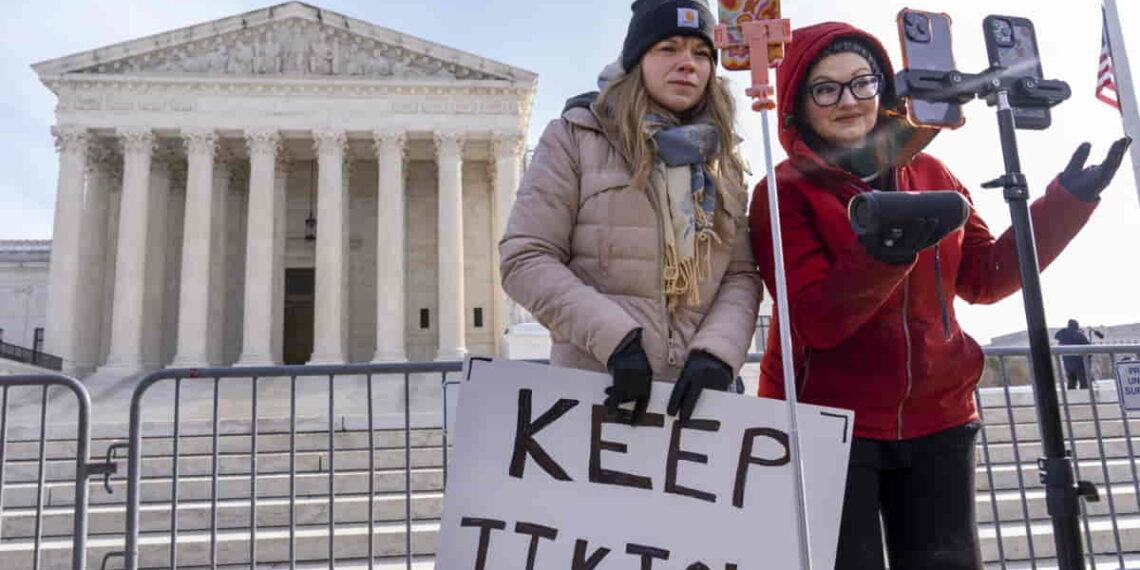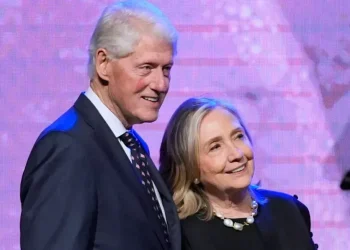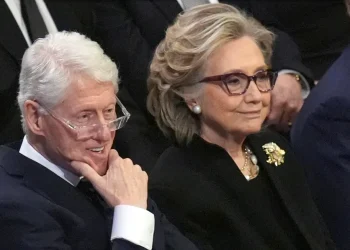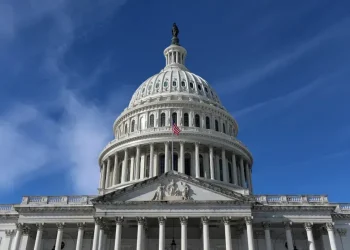Supreme Court Upholds Law Banning TikTok Unless Sold by Its Chinese Parent Company
In a unanimous decision on Friday, the U.S. Supreme Court upheld a federal law that will effectively ban TikTok in the United States starting Sunday, unless its Chinese parent company, ByteDance, sells the app. The ruling prioritizes national security concerns over the potential limitations to free speech that may affect TikTok’s 170 million U.S. users.
Impact on Users
Although the law takes effect on January 19, experts believe TikTok will not disappear from existing users’ phones immediately. However, new users will no longer be able to download the app, and updates will be restricted, which could render TikTok unusable in the future. According to the Justice Department, these limitations will ultimately make the app nonfunctional for all users.
Political Backdrop
The decision occurred amid political tension between outgoing President Joe Biden and incoming President Donald Trump. Despite concerns over TikTok’s connection to China, Trump—who has 14.7 million followers on TikTok—has expressed interest in negotiating a solution. He also hinted at discussing the app with Chinese President Xi Jinping just before the Supreme Court’s ruling.
Trump’s stance contrasts with that of prominent Senate Republicans, who have criticized ByteDance for not finding a buyer earlier. The law, which allowed for a 90-day pause in enforcement if progress toward a sale was made, creates further uncertainty about what may happen once Trump takes office.
National Security Concerns
The Supreme Court’s opinion stressed the law’s focus on national security, stating that TikTok’s ties to China raised significant risks, particularly in relation to data collection and potential manipulation by the Chinese government. The Court concluded that Congress’s decision to mandate the sale of TikTok was necessary to address these concerns, despite arguments over the impact on free speech.
Justice Sonia Sotomayor and Justice Neil Gorsuch filed separate opinions, expressing reservations but ultimately supporting the ruling. Gorsuch acknowledged the “dramatic” nature of the law but emphasized the national security risks posed by TikTok’s data access.
TikTok’s Legal Battle and ByteDance’s Resistance
TikTok and its parent company, ByteDance, have long denied the app’s use as a tool of the Chinese government. However, U.S. officials have raised alarms about TikTok’s ability to gather sensitive data, such as viewing habits, which could potentially be accessed by the Chinese government. Additionally, concerns about the app’s algorithm being manipulated to shape content in ways that may benefit Chinese authorities have been central to the legal debate.
Despite these concerns, TikTok has argued that no evidence has been presented showing China has attempted to manipulate U.S. content or extract data from the app’s users.
The Legal and Political Landscape
The law, signed by President Biden in April, followed a prolonged debate in Congress over TikTok’s security risks. In December, a three-judge panel upheld the law, leading TikTok to quickly appeal to the Supreme Court.
Should ByteDance refuse to sell TikTok to an approved buyer, the law would ban the app from U.S. app stores operated by companies like Apple and Google. Additionally, internet hosting services would be prohibited from hosting TikTok content.
Possible Buyers and Future Uncertainty
ByteDance has indicated it has no intention of selling TikTok. However, several investors, including former Treasury Secretary Steven Mnuchin and billionaire businessman Frank McCourt, have shown interest in acquiring TikTok’s U.S. assets. McCourt’s Project Liberty initiative, which includes business figures like “Shark Tank” host Kevin O’Leary, has proposed an acquisition but has not disclosed financial terms.
Solicitor General Elizabeth Prelogar, who represented the Biden administration before the Supreme Court, suggested that the impending law might serve as a final push for ByteDance to reconsider its refusal to sell.
Conclusion
The Supreme Court’s ruling marks a significant milestone in the ongoing legal and political battle over TikTok’s ties to China. With the law taking effect on January 19, the future of the app in the U.S. remains uncertain, and the potential for a sale or continued resistance from ByteDance will shape the next chapter in this high-stakes conflict between national security and free speech.
This article was rewritten by JournosNews.com based on verified reporting from trusted sources. The content has been independently reviewed, fact-checked, and edited for accuracy, neutrality, tone, and global readability in accordance with Google News and AdSense standards.
All opinions, quotes, or statements from contributors, experts, or sourced organizations do not necessarily reflect the views of JournosNews.com. JournosNews.com maintains full editorial independence from any external funders, sponsors, or organizations.
Stay informed with JournosNews.com — your trusted source for verified global reporting and in-depth analysis. Follow us on Google News, BlueSky, and X for real-time updates.













